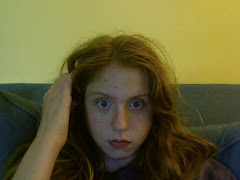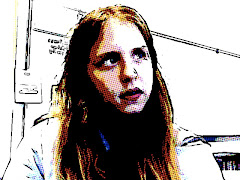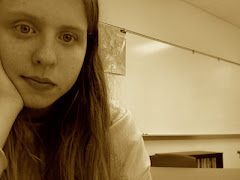For over a year, I've been sitting around trying to figure out what makes or breaks someone as a reporter. The people who come to The Oak Leaf, mostly consider themselves to be writers, and some of them can adjust and become good reporters but most of them don't and I haven't been able to figure out why.
Until today. Here's my theory:
There are two main kinds of writers: Storytellers and Artists.
Artists write to express themselves- their emotions- their thoughts. They use their words to paint pictures, some ugly-some beautiful. They see writing as a beautiful artistic medium. They're all about carefully worded phrases, exquisite images, symbols, the innermost thoughts and emotions- detail stuff that most people don't even think about.
Storytellers, on the other hand, are more about broad strokes. They focus more on cool plots and interesting characters than on little details. Storytellers can and often are artistic, but a big part of why they write is because they love stories. They like to create their tales and share them with others, because it's fun!
Storytellers are the ones that have an easier time becoming reporters, because they focus on stories. You can find real world stories with real people as characters and tell them. Which makes sense to a storyteller's brain.
But it's harder for artists, because they're used to setting up irony, symbolism, and depth that isn't always evident in the real world. Or possible to include in a newspaper article without editorializing. People don't speak in elegant phrasings, and news style writing isn't kind to figurative language. The Artists are used to writing by themselves and for themselves. It's hard for them to turn their solitary art into a practical form of communication.
Whereas, Storytellers are used to performing for an audience and writing simple but fun stories without as much depth.
Of course, I'm making really broad generalizations, and no Writer is 100% Artist or 100% Storyteller.
But if you're going to be a reporter, you're going to have to start looking at the world through Storyteller eyes. There are limitless stories out there in the real world just waiting to be told.
And reporters are the ones that tell them.












